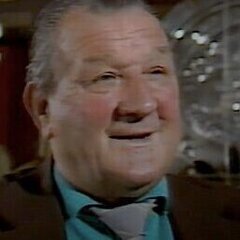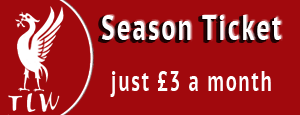Leaderboard
Popular Content
Showing content with the highest reputation on 06/04/19 in all areas
-
Is it just me or do City seem to score in the first 5-10 minutes of every game? It’s fucking tiresome and it’s the main reason why I just avoid their games completely now and don’t even bother checking the score until it’s finished. Realistically, after such a fast start they should be putting six or seven past these shit teams but they get to 2-0 up and then just pass the ball around for the rest of the game. It’s almost like it’s a pre-arranged agreement. “Let us go a couple up and then we’ll go easy on you. Alternatively, you can make a fight of it and we’ll embarrass you and take a fucking sledgehammer to your goal difference. Your choice”. That Fulham side without Mitrovic and Schurrle was fucking brutal. Babel at centre forward, some fucker I’d never heard of on the right and Ryan Sessegnon on the left. How much has his stock fallen this season by the way? He’s barely contributed anything for months. A year ago you’d have been paying £60m for him, now I’m not sure that a) he’d cost much more than half that, and b) any top team would still want him even at that price. I’d probably still take him but only at the right price. He could still thrive under the right manager and with better players around him, but he’s not the sure thing he looked a year ago. He’s still really young though and this might just be a small bump in the road. Can’t have been easy for him this year as Fulham are a mess. We were the only club to spend more than them last summer but what did they get for their money? Nothing. Schurrle is the only one who made any kind of impact. The others have all bombed spectacularly. They’ve had three managers too. And you have to feel a little sorry for their forwards when they know they need to score three just to have a chance of winning. The attackers started the season well under Jokanovic but since he was canned Sessegnon has vanished and Mitrovic’s goals have dried up. That defence has been historically bad, but when you have the likes of Tim Ream in it then is it any wonder? He didn’t play against City, which would have been good news if his replacement wasn’t the even worse Le Marchand. Out of the frying pan into the fucking erupting volcano. Fulham’s players started the game as though they had big money on a City landslide. They just kept passing the ball to City players on the edge of their own box. Fucking losers. Both of City’s goals came from Fulham players just inexplicably giving them the ball in their own defensive third. City are good enough that they don’t need this kind of help to win games, but Fulham gave them it anyway. Pricks. Can’t believe I spent most of the season thinking (and hoping) they’d get out of it because they can play nice football. Since Jokanovic left they don't even really play nice football, but they've still leaked goals like a sieve. They’re fucking shite. All they have is Mitrovic, who needs to get the hell out of dodge now because he’s a top half of the Premier League calibre striker playing in a Championship standard team. They were officially relegated in midweek after they were destroyed by Watford. Doucoure scored for the second game in succession, but Babel found the net to make it 1-1 and give them hope. Then they got steamrollered and my boy Troy got one of the goals. Bye bye Fulham. Good result for Watford though, who bounced back well from an unfortunate defeat at Old Trafford at the weekend. They've got a legitimate shot at pipping Wolves to 7th spot, but that loss to United hurt them as they deserved so much more. It wasn't a good time to go there as the Mancs after were in jubilant mood after Solskjaer got the job permanently, and they rode that wave of emotion to scrape an undeserved, scrappy win over the Hornets, before scraping an undeserved, scrappy loss at Wolves. What’s this Ole’s at the wheel shite I keep hearing. Where did that come from? What does it mean? It’s lame as fuck. I’m sick of reading it and hearing it. Even worse is the media shoehorning it into their analysis. Just fuck off. If Ole is at the wheel, someone might want to breathalyse the little goblin fuck as the way they’ve been playing recently it looks like he’s been at Fergie’s Scotch cabinet. He’s lost three out of four now, two of them to Wolves and Connor Coady, who was fucking loving it by the way. The winning streak of United's has suddenly become a losing streak just before they are due to play City. Knobheads. As you know I never watch their games and usually don’t bother with highlights unless they’ve lost. I tried to make an exception and watched some of their highlights against Watford. I got as far as Martial pulling off a spectacularly shit dive trying to win a pen and decided “fuck this” and forwarded to the next game. I didn’t watch their game at Wolves either but I saw the Smalling own goal and the Keystone Cops defending from Phil Jones and his mad face. He’s the gift that keeps on giving that lad. Jones is such a great comedy figure that it’s inevitable he’s going to end up at Everton when United eventually tire of him. I can’t wait to see his gurning gob after doing a Sandy Brown in the Derby. That win was a good way for Wolves to bounce back after losing at Burnley on Saturday. They played quite well but didn’t take their chances. Coady scored an unfortunate own goal after two minutes and then McNeil wrapped it up for Burnley after the break. He’s not bad him, for a Burnley player. Elsewhere, Palace wasted chance after chance against Huddersfield and it looked like they’d never score until they were awarded a penalty. Of course they were. Zaha won it. Of course he did. And Milovojevic buried it. Of course he did. Twas ever thus. The BBC commentator said that was their ninth pen of the season. Presumably that season is ‘winter’. Zaha tormented Huddersfield but his finishing was terrible. He teed up Van Aanholt for the second and just like Huddersfield were relegated. In March. Three days before Fulham. Takes some doing that. They’ll probably come straight back up because I imagine they’ll keep their squad together. Let’s face it, who is going to be picking from that rotten carcass? Unlike Fulham, I do feel sympathy for Huddersfield. They’re a hard working team, they fight for everything and they’ve got a great crowd. I reckon they’re much better equipped to bounce back than Fulham are, and if they had Mitrovic they might have even survived. One striker really can make all the difference. Look at the contrasting fortunes of West Ham and Stoke last season after Arnautovic swapped clubs. He was brilliant at West Ham for a while, but he’s done fuck all since they blocked his move to China and gave him a bumper pay rise. Has he even scored since then? Has he even played? Can’t remember the last time he did anything. The Hammers lost to Everton at the weekend and they were lucky it was only 2-0 as they got their arses handed to them by the Blues. Zouma headed the opener after five minutes and then Bernard made it 2-0. It should have been more but the woodwork, Fabianski and the unwavering shitness of Calvert-Lewin ensured it stayed at two. That was Bernard’s first goal in the league and it came on the last week of March. He’s an attacking midfielder! Christ, even Stewart Downing was good for two or three a season. Funny how the Blues thought he was going be their Coutinho and that landing him was some kind of coup. Deluded fucks. He's done even less than the last Brazilian winger they had, "Rodrigol". If Bernard was any good he would never have ended up at Everton. Actually that’s not strictly true, because Digne is a very good player and he somehow ended up at Goodison. He's the exception that proves the rule I guess. Leicester won again. Wes Morgan deflected in a shot from Chilwell to set them on the way to victory over Bournemouth, who away from home are about as much use as a chocolate fireguard. Vardy wrapped it up late on with a fine header and from the highlights Leicester looked as though they played really well. A couple of moves they put together had Brendan’s stubby little fingermarks all over them. The chipped pass from keeper to full back, playing their way out of trouble and getting in behind with two or three passes. Like watching Swansea back in the day. Wonder if he’ll sign Wee Joe this summer? Leicester actually have some of the best players outside of the top six. Vardy, Ricardo, Chilwell, Maguire, Maddison, all very good players, but Brendan was positively gushing about Morgan afterwards. He’s found his new Kolo. Random thought: Whatever happened to Danny Drinkwater? He’s vanished off the face of the earth. I can’t even remember the last time I saw him. Mad the way his career path took him to the same club as his title winning partner Kante but their careers have gone in completely opposite directions. In hindsight, Drinkwater should have followed Vardy's example, not Kante's. Next up, Southampton and Brighton met in a huge relegation six pointer at the Amex, and it was the Saints who came out on top to leave Chris Hughton’s side in a spot of trouble. Cardiff’s woes will probably ensure everyone else down there survives, but if Cardiff somehow string a few wins together than Brighton are currently looking the most vulnerable of the rest. Hojbjerg got the only goal of the game and the result was a little harsh on Brighton who deserved a point. Montoya hit the bar, Duffy missed a sitter and Propper thought he should have had a pen, but Southampton held on for the win. Burnley, Brighton and Southampton are all on the same points now, although Burnley have played a game more. Ideally I’d like Cardiff to win a couple just to ensure Burnley still have something to play for when they face City. It’s not looking likely though. They got screwed against Chelsea on Sunday. Massively screwed. They led through Camarasa and were denied a clear penalty when Rudiger pulled back Morrison. Then with five minutes left Chelsea scored the most offside goal of the season to equalise, Rudiger then escaped a clear red card and Chelsea won it in stoppage time. I’m not arsed about Cardiff’s misfortune because after the way they’ve carried on regarding the unpaid transfer fee for Emiliano Sala they deserve nothing less than relegation. Fuck them. Chelsea winning was no bad thing either as it keeps the top four scramble alive, which benefits us as it means both Spurs and United won’t be able to afford to take the City game off. The other thing it did was kept Sarri from getting the sack. The last thing we needed ahead of next week was for them to ditch the manager, and it might have happened if they’d lost this as the travelling fans were calling for his head until that late turnaround. A new manager would probably come in and drop Jorginho and put Kante back where he should be. We don’t need that at all, so this comeback suits us just fine I’d say. I’m surprised Warnock didn’t kick off a lot more than he did. Considering the lengths he’s gone to when complaining about relatively minor officiating mistakes, I thought he’d have gone absolutely nuclear over this one. Instead he just stood in front of the officials on the pitch at the end, saying nothing but giving them the massive stink eye. They didn’t know what to do, they just stood there waiting for him to move out of their path but he didn’t. They wouldn't make eye contact with him, it was like the Medusa scene in Clash of the Titans. The funny thing is that for once virtually nobody is criticising him, as the decision was SO bad he had every right to be pissed off. I doubt there’s been a bigger error from a linesman all season (the sterling goal the other week was on the ref, not the lino), but as has been pointed out since (most notably by Carra and his fancy VR headset on MNF!) he simply couldn’t see it, because Willian was in his way. He has to stand right on the corner spot so he can check if the ball goes out of play, and then as he tries to get back in line with the ball, his view is blocked by the corner taker. He needed to get himself in position for a clear view but he didn’t do it in time and so couldn’t see the offside. Its not an excuse as he needs to position himself better than that, but at least he had a legitimate reason for getting that wrong. That’s more than can be said for Craig Pawson. How is he not sending off Rudiger for being the last man? Or giving the blatant penalty that he was looking right at? It’s hard to get over the injustice of something like that if you're a Cardiff fan. They need every point they can get and if they end up going down by just a couple of points they can legitimately look back on this as the biggest reason they didn’t survive. Of course all of those teams at the bottom will be able to point to shitty decisions that went against them too, but none as absolutely blatant as this. Still, never mind, eh? Warnock was so pissed off afterwards he threatened to field his u23 side at City three days later and “hope to keep the score down to ten or eleven”. He didn’t do it because not even he can be that lacking in self awareness. The fella hasn’t shut up about Rafa resting players ten years ago, even though he did the exact same thing a few months earlier. There’s no question that Warnock has been on the end of some shitty decisions this season though and he said the next day (joking, it should be said) that he wonders if the officials have gotten together and said “let’s get him out of here” due to the years of abuse he’s dished out to fourth officials over the years. I don’t think it’s that, I just think it’s the subconscious “big club bias” we see all the time, but I often wonder how refs manage to not let things like Warnock’s continual behaviour towards them influence their thinking. Maybe the answer is that they do let it influence them. I know I would. Most of them must hate Warnock so it’s human nature to not give his team the benefit of the doubt. He’s reaping what he sewed, as are Cardiff after their Sala shenanigans. Just need them to hold on long enough to keep Burnley involved in the relegation battle, then they can fuck off to join Fulham and Huddersfield. As for Chelsea, they needed that bit of luck and they capitalised on it by winning again in midweek. That one was far more comfortable as Brighton were just overwhelmed. Giroud, Hazard and Loftus-Cheek got the goals in a 3-0 win that opened up a two gap between them and United, and kept them just one point behind third placed Spurs, who got back on track with a win over Palace in midweek. The game was their first in their new stadium, and you know that dribble chin fuckwit Kane will be fuming that he didn’t get the first goal there. That honour fell to Son, with Eriksen adding a second with ten minutes to go. Spurs really needed that win as they’ve been a little unfortunate in recent weeks and their form has been nowhere near as bad as their results. It’s mad how they had suddenly found themselves below Arsenal when the gap between them was so big not so long ago. Arsenal have just sneaked up there by doing Arsenal things. By that I mean taking care of business against the dregs, especially at home. That’s a good habit to have and it kept them in the top four under Wenger for years. The thing that proved their undoing was the constant spineless away defeats, but they’ve got a bit more backbone about them now (especially since they stopped relying on the freeloading Oil). They beat Newcastle 2-0 on Monday night. I don’t have much more to say about it as I didn’t see any of it. I know Ramsay scored, and that they're going to find him difficult to replace as the rest of their midfielders are bang average, much like all of their defenders. Man for man, Spurs look way better than Arsenal yet they're neck and neck. At this point if I had to pick who’ll get third and fourth I’d go for Spurs and Arsenal, but much of it depends on how much Chelsea’s players can be arsed and how much spawn United continue to have. It looks like it may have run out now, but you can never tell with them. Sarri’s best bet might be to play a few of the squad players with points to prove. The likes of Loftus-Cheek and Hudson-Odoi are going to give him more than Willian, Pedro and Kovacic in the run in. And with that transfer ban looming it would make sense for them to look more to the future. In fact, leaving out Hazard at Anfield next week would make perfect sense too as he’s not going to be there next year. They should leave him at home and bring one of their youth players instead. Come on Sarri, you know it makes sense.6 points
-
Apparently Pickford has already gone ahead and had 4 inches removed from each arm4 points
-
4 points
-
Citeh trying so hard to be a big club, and that will never happen despite the gallons of oil money sunk in to them. 20 years ago they were knocking about league 1. Ten years ago they were getting arse raped without lube against Middlesborough. All this talk of 'Klanfield', 'Dippers' etc is there way of building up a rivalry that frankly is no where near that of their red brethren in Salford, who from a league perspective are the only legitimate entity that can lord it over us . As much as I loathe United, I can respect the rivalry. I can't do it with this shower of cunts. Its not too dissimilar to the manufactured Chelsea rivalry under Rafa and Shitcoat. City may well win the title. It will mean little to their fans who can be barely arsed to attend a knockout Champions league game. Sure, they can stop us winning it and leave us to lament over a record points score for a second place team that would have otherwise seen us stroll to the title. But it will be hollow. The team that spends the most is generally expected to win. Sure, there will be life long city fans this will mean the world too. We will push them all the way. Or we win it. I remember the wank fest in 1992 when United won it after 26 years or however long it was, in the first season that football was rebooted by Sky. Teams and other supporters dont want to see us win out of spite. Fine, I dont care. We'll make the biggest fucking noise if it happens and every single last person is going to know about it. Football has become remarkably soul less over the last couple of decades as it becomes out of reach to the working class in terms of money and accessibility. Wouldnt have known there was a Champions League tournamnet in the last two seasons if we were not in it. As many fans as there are dont want to see us win would enjoy a Liverpool title win, because it will at least ignite aome genuine passion in Victory, last seen at Istanbul. Let's fucking do it Red Men. Stand on the oil barons tail long enough for them to yelp and we will finish them off.4 points
-
4 points
-
4 points
-
4 points
-
We’ve got some Crunchies in the cupboard. I was planning to use them for baking. I’m going to have one now just out of spite4 points
-
3 points
-
There’s probably a better thread for this, but for reasons which will soon become clear, I can’t be arsed searching for one. Anyway, we’ve come to The Lakes for a few days (was going to be until Wednesday but then I realised I had to be in L4 on Tuesday night) and are staying at a lovely little cottage in Grassmere that a colleague of Mrs Paul’s owns (£15 per person, per night!!!). So we called in at Booth’s, the bossest supermarket ever, to get some posh food and snacks and picked up some Lancaster crisps. The salt vinegar are sensational, but the real story here is black puddo and English mustard flavour. There’s an actual mustard kick on them! Shit is real, yo. So I’m now sitting in the garden/countryside in the full sunshine with a big fat gin, these boss crisps, Gilles on the radio and a good book on the go. Living the dream. Peace, out.3 points
-
Pepe would be the best fit out of almost anybody for me. He'd basically occupy the same positions as Salah (right wing but has the ability to play up front). I've watched him a lot and I think he'd also be a great fit for the Premier League. He's fast and he has the physicality and ability to protect the ball. To me he's similar to Salah and Mane in that the technique is not always clean and it's inconsistent, but he has match-winning quality and defenders shit their pants around him. He's also one of those players that is visibly demanding of his teammates on the pitch and demands excellence. He has ego in a good way and his teammates seem to respect him. The Lille team he plays in has been one of the best counter-attacking teams around this season and it's mostly because of him. It's really just a matter of can he replicate some of his end-product in England that he's shown in France and could he establish himself in our attack and become a legitimate option, because it's not easy with the quality we already have.3 points
-
A bit poncified, but weirdly I don't mind the frying pan. Many a time I've done a fry up and not wanted to wait to stick it all on a plate. Extra points for the beans being correctly separated into their little metal prison too. Makes it easier to hoik them into the nearest bin.3 points
-
3 points
-
I took my lad to the game last night, it was his first time, unfortunately we were in the Southampton end to which he gave me no end of grief about. Once I heard Naby was playing I decided to pay close attention to him to see if he is worse on the TV than in real life. I thought he was excellent last night so I didn't need to pay the extra attention to what he did. If we get this Naby till the end of the season then we will have a chance, a bloody good one at that.3 points
-
Just stopped hyperventilating. Fuckers for putting me through this. My Gran passed away today so this one is bittersweet and beautiful. Redmen forever.3 points
-
Channel 5? Well that explains a lot. Is it just me who thinks Haribo are horrible?3 points
-
The Loser: The Most Honest Sports Story Ever Written 7/18/13 1:13pm Originally published in the March 1964 issue of Esquire. Reprinted here with the author's permission. At the foot of a mountain in upstate New York, about 60 miles from Manhattan, there is an abandoned country clubhouse with a dusty dance floor, upturned barstools and an untuned piano; and the only sounds heard around the place at night come from the big white house behind it—the clanging sounds of garbage cans being toppled by raccoons, skunks and stray cats making their nocturnal raids down from the mountain. The white house seems deserted, too; but occasionally, when the animals become too clamorous, a light will flash on, a window will open, and a Coke bottle will come flying through the darkness and smash against the cans. But mostly the animals are undisturbed until daybreak, when the rear door of the white house swings open and a broad-shouldered Negro appears in gray sweat clothes with a white towel around his neck. He runs down the steps, quickly passes the garbage cans and proceeds at a trot down the dirt road beyond the country club toward the highway. Sometimes he stops along the road and throws a flurry of punches at imaginary foes, each jab punctuated by hard gasps of his breathing—"hegh-hegh-hegh"—and then, reaching the highway, he turns and soon disappears up the mountain. At this time of morning, farm trucks are on the road, and the drivers wave at the runner. And later in the morning, other motorists see him, and a few stop suddenly at the curb and ask: "Say, aren't you Floyd Patterson?" "No," says Floyd Patterson, "I'm his brother, Raymond." The motorists move on, but recently a man on foot, a disheveled man who seemed to have spent the night outdoors, staggered behind the runner along the road and yelled, "Hey, Floyd Patterson!" "No, I'm his brother, Raymond." "Don't tell me you're not Floyd Patterson. I know what Floyd Patterson looks like." "Okay," Patterson said, shrugging, "if you want me to be Floyd Patterson, I'll be Floyd Patterson." "So let me have your autograph," said the man, handing him a rumpled piece of paper and a pencil. He signed it—"Raymond Patterson." One hour later Floyd Patterson was jogging his way back down the dirt path toward the white house, the towel over his head absorbing the sweat from his brow. He lives alone in a two-room apartment in the rear of the house, and has remained there in almost complete seclusion since getting knocked out a second time by Sonny Liston. In the smaller room is a large bed he makes up himself, several record albums he rarely plays, a telephone that seldom rings. The larger room has a kitchen on one side and, on the other, adjacent to a sofa, is a fireplace from which are hung boxing trunks and T-shirts to dry, and a photograph of him when he was the champion, and also a television set. The set is usually on except when Patterson is sleeping, or when he is sparring across the road inside the clubhouse (the ring is rigged over what was once the dance floor), or when, in a rare moment of painful honesty, he reveals to a visitor what it is like to be the loser. "Oh, I would give up anything to just be able to work with Liston, to box with him somewhere where nobody would see us, and to see if I could get past three minutes with him," Patterson was saying, wiping his face with the towel, pacing slowly around the room near the sofa. "I know I can do better. . . . Oh, I'm not talking about a rematch. Who would pay a nickel for another Patterson-Liston fight? I know I wouldn't. . . . But all I want to do is get past the first round." Then he said, "You have no idea how it is in the first round. You're out there with all those people around you, and those cameras, and the whole world looking in, and all that movement, that excitement, and 'The Star-Spangled Banner,' and the whole nation hoping you'll win, including the President. And do you know what all this does? It blinds you, just blinds you. And then the bell rings, and you go at Liston and he's coming at you, and you're not even aware that there's a referee in the ring with you. ". . . Then you can't remember much of the rest, because you don't want to. . . . All you recall is, all of a sudden you're getting up, and the referee is saying, 'You all right?' and you say, 'Of course I'm all right,' and he says, 'What's your name?' and you say, 'Patterson.' "And then, suddenly, with all this screaming around you, you're down again, and you know you have to get up, but you're extremely groggy, and the referee is pushing you back, and your trainer is in there with a towel, and people are all standing up, and your eyes focus directly at no one person—you're sort of floating. "It is not a bad feeling when you're knocked out," he said. "It's a good feeling, actually. It's not painful, just a sharp grogginess. You don't see angels or start; you're on a pleasant cloud. After Liston hit me in Nevada, I felt, for about four or five seconds, that everybody in the arena was actually in the ring with me, circled around me like a family, and you feel warmth toward all the people in the arena after you're knocked out. You feel lovable to all the people. And you want to reach out and kiss everybody—men and women—and after the Liston fight, somebody told me I actually blew a kiss to the crowd from the ring. I don't remember that. But I guess it's true because that's the way you feel during the four or five seconds after a knockout. . . . "But then," Patterson went on, still pacing, "this good feeling leaves you. You realize where you are, and what you're doing there, and what has just happened to you. And what follows is a hurt, a confused hurt—not a physical hurt—it's a hurt combined with anger; it's a what-will-people-think hurt; it's an ashamed-of-my-own-ability hurt. . . . And all you want then is a hatch door in the middle of the ring—a hatch door that will open and let you fall through and land in your dressing room instead of having to get out of the ring and face those people. The worst thing about losing is having to walk out of the ring and face those people. . . ." Then Patterson walked over to the stove and put on the kettle for tea. He remained silent for a few moments. Through the walls could be heard the footsteps and voices of the sparring partners and the trainer who live in the front of the house. Soon they would be in the clubhouse getting things ready should Patterson wish to spar. In two days he was scheduled to fly to Stockholm and fight an Italian named Amonti, Patterson's first appearance in the ring since the last Liston fight. Next he hoped to get a fight in London against Henry Cooper. Then, if his confidence was restored, his reflexes reacting, Patterson hoped to start back up the ladder in this country, fighting all the leading contenders, fighting often, and not waiting so long between each fight as he had done when he was a champion in the 90-percent tax bracket. His wife, whom he finds little time to see, and most of his friends think he should quit. They point out that he does not need the money. Even he admits that, from investments alone on his $8,000,000 gross earning, he should have an annual income of about $35,000 for the next 25 years. But Patterson, who is only 29 years old and barely scratched, cannot believe that he is finished. He cannot help but think that it was something more than Liston that destroyed him—a strange, psychological force was also involved, and unless he can fully understand what it was, and learn to deal with it in the boxing ring, he may never be able to live peacefully anywhere but under this mountain. Nor will he ever be able to discard the false whiskers and moustache that, ever since Johansson beat him in 1959, he has carried with him in a small attache case into each fight so he can slip out of the stadium unrecognized should he lose. "I often wonder what other fighters feel, and what goes through their minds when they lose," Patterson said, placing the cups of tea on the table. "I've wanted so much to talk to another fighter about all this, to compare thoughts, to see if he feels some of the same things I've felt. But who can you talk to? Most fighters don't talk much anyway. And I can't even look another fighter in the eye at a weigh-in, for some reason. "At the Liston weigh-in, the sports writers noticed this, and said it showed I was afraid. But that's not it. I can never look any fighter in the eye because . . . well, because we're going to fight, which isn't a nice thing, and because . . . well, once I actually did look a fighter in the eye. It was a long, long time ago. I must have been in the amateurs then. And when I looked at this fighter, I saw he had such a nice face . . . and then he looked at me . . . and smiled at me . . . and I smiled back! It was strange, very strange. When a guy can look at another guy and smile like that, I don't think they have any business fighting. "I don't remember what happened in that fight, and I don't remember what the guy's name was. I only remember that, ever since, I have never looked another fighter in the eye." The telephone rang in the bedroom. Patterson got up to answer it. It was his wife, Sandra. So he excused himself, shutting the bedroom door behind him. Sandra Patterson and their four children live in a $100,000 home in an upper-middle-class white neighborhood in Scarsdale, New York. Floyd Patterson feels uncomfortable in this home surrounded by a manicured lawn and stuffed with furniture, and, since losing his title to Liston, he has preferred living full time at his camp, which his children have come to know as "Daddy's house." The children, the eldest of whom is a daughter named Jeannie now seven years old, do not know exactly what their father does for a living. But Jeannie, who watched the last Liston-Patterson fight on closed-circuit television, accepted the explanation that her father performs in a kind of game where the men take turns pushing one another down; he had his turn pushing them down, and now it is their turn. The bedroom door opened again, and Floyd Patterson shaking his head, was very angry and nervous. "I'm not going to work out today," he said. "I'm going to fly down to Scarsdale. These boys are picking on Jeannie again. She's the only Negro in this school, and the older kids give her a rough time, and some of the older boys tease her and lift up her dress all the time. Yesterday she went home crying, and so today I'm going down there and plan to wait outside the school for those boys to come out, and . . ." "How old are they?" he was asked. "Teen-agers," he said. "Old enough for a left hook." Patterson telephoned his pilot friend, Ted Hanson, who stays at the camp and does public-relations work for him, and has helped teach Patterson to fly. Five minutes later Hanson, a lean white man with a crew cut and glasses, was knocking on the door; and 10 minutes later both were in the car that Patterson was driving almost recklessly over the narrow, winding country roads toward the airport, about six miles from the camp. "Sandra is afraid I'll cause trouble; she's worried about what I'll do to those boys, she doesn't want trouble!" Patterson snapped, swerving around a hill and giving his car more gas. "She's just not firm enough! She's afraid . . . she was afraid to tell me about that groceryman who's been making passes at her. It took her a long time before she told me about that dishwasher repairman who comes over and calls her 'baby.' They all know I'm away so much. And that dishwasher repairman has been to my home about four five times this month already. That machine breaks down every week. I guess he fixes it so it breaks down every week. Last time, I laid a trap. I waited forty-five minutes for him to come, but then he didn't show up. I was going to grab him and say, 'How would you like it If I called your wife baby? You'd feel like punching me in the nose, wouldn't you? Well, that's what I'm going to do—if you ever call her baby again. You call her Mrs. Patterson; or Sandra, if you know her. But you don't know her, so call her Mrs. Patterson.' And then I told Sandra that these men, this type of white man, he just wants to have some fun with colored women. He'll never marry a colored woman, just wants to have some fun. . . ." Now he was driving into the airport's parking lot. Directly ahead, roped to the grass airstrip, was the single-engine green Cessna that Patterson bought and learned to fly before the second Liston fight. Flying was a thing Patterson had always feared—a fear shared, maybe inherited from, his manager, Cus D'Amato, who still will not fly. D'Amato, who took over training Patterson when the fighter was 17 or 18 years old and exerted a tremendous influence over his psyche, is a strange but fascinating man of 56 who is addicted to Spartanism and self-denial and is possessed by suspicion and fear; he avoids subways because he fears someone might push him onto the tracks; never has married; never reveals his home address. "I must keep my enemies confused," D'Amato once explained. "When they are confused, then I can do a job for my fighters. What I do not want in life, however, is a sense of security; the moment a person knows security, his senses are dulled—and he begins to die. I also do not want many pleasures in life; I believe the more pleasure you get out of living, the more fear you have of dying." Until a few years ago, D'Amato did most of Patterson's talking, and ran things like an Italian padrone. But later Patterson, the maturing son, rebelled against the Father Image. After losing to Sonny Liston the first time—a fight D'Amato had urged Patterson to resist—Patterson took flying lessons. And before the second Liston fight, Patterson had conquered his fear of height, was master at the controls, was filled with renewed confidence—and knew, too, that, even if he lost, he at least possessed a vehicle that could get him out of town fast. But it didn't. After the fight, the little Cessna, weighed down by too much luggage, became overheated 90 miles outside of Las Vegas. Patterson and his pilot companion, having no choice but to turn back, radioed the airfield and arranged for the rental of a larger plane. When they landed, the Vegas air terminal was filled with people leaving town after the fight. Patterson hid in the shadow behind a hangar. His beard was packed in the trunk. But nobody saw him. Later the pilot flew Patterson's Cessna back to New York alone. And Patterson flew in the larger, rented plane. He was accompanied on this flight by Hanson, a friendly, 42-year-old, thrice divorced Nevadan who once was a crop duster, a bartender and a cabaret hoofer; later he became a pilot instructor in Las Vegas, and it was there that he met Patterson. The two became good friends. And when Patterson asked Hanson to help fly the rented plane back to New York, Hanson did not hesitate, even though he had a slight hangover that night—partly due to being depressed by Liston's victory, partly due to being slugged in a bar by a drunk after objecting to some unflattering things the drunk had said about the fight. Once in the airplane, however, Ted Hanson became very alert; He had to, because, after the plane had cruised a while at 10,000 feet, Floyd Patterson's mind seemed to wander back to the ring, and the plane would drift off course, and Hanson would say, "Floyd, Floyd, how's about getting back on course?" and then Patterson's head would snap up and his eyes would flash toward the dials. And everything would be all right for a while. But then he was back in the arena, reliving the fight, hardly believing that it had really happened. . . . "... And I kept thinking, as I flew out of Vegas that night, of all those months of training before the fight, all the roadwork, all the sparring, all the months away from Sandra. . . . thinking of the time in camp when I wanted to stay up until eleven-fifteen P.M. to watch a certain movie on "The Late Show." But I didn't because I had roadwork the next morning. . . . "... And I was thinking about how good I'd felt before the fight, as I lay on the table in the dressing room. I remember thinking, 'You're in excellent physical condition, you're in good mental condition—but are you vicious?' But you tell yourself, 'Viciousness is not important now, don't think about it now; a championship fight's at stake, and that's important enough and, who knows? maybe you'll get vicious once the bell rings.' "... And so you lay there trying to get a little sleep . . . but you're only in a twilight zone, half asleep, and you're interrupted every once in a while by voices out in the hall, some guy's yelling 'Hey, Jack,' or 'Hey, Al,' or 'Hey, get those four-rounders into the ring.' And when you hear that, you think, They're not ready for you yet. So you lay there . . . and wonder, Where will I be tomorrow? Where will I be three hours from now? Oh, you think all kinds of thoughts, some thoughts completely unrelated to the fight . . . you wonder whether you ever paid your mother-in-law back for all those stamps she bought a year ago . . . and you remember that time at two A.M. when Sandra tripped on the steps while bringing a bottle up to the baby . . . and then you get mad and ask: What am I thinking about these things for? . . . and you try to sleep . . . but then the door opens and somebody says to somebody else, 'Hey, is somebody gonna go to Liston's dressing room to watch 'em bandage up?' "... And so then you know it's about time to get ready. . . . You open your eyes. You get off the table. You glove up, you loosen up. Then Liston's trainer walks in. He looks at you, he smiles. He feels the bandages and later he says, 'Good luck, Floyd,' and you think, He didn't have to say that, he must be a nice guy. ". . . And then you go out, and it's the long walk, always a long walk, and you think, What am I gonna be when I come back this way? Then you climb into the ring. You notice Billy Eckstine at ringside leaning over to talk to somebody, and you see the reporters—some you like, some you don't like—and then it's 'The Star-Spangled Banner,' and the cameras are rolling, and the bell rings. . . . "... How could the same thing happen twice? How? That's all I kept thinking after the knockout. . . . Was I fooling these people all these years? . . . Was I ever the champion? . . . And then they lead you out of the ring . . . and up the aisle you go, past those people, and all you want is to get to your dressing room, fast . . . but the trouble was in Las Vegas they made a wrong turn along the aisle, and when we got to the end, there was no dressing room there . . . and we had to walk all the way back down the aisle, past the same people, and they must have been thinking, Patterson's not only knocked out, but he can't even find his dressing room. . . . "... In the dressing room I had a headache. Liston didn't hurt me physically—a few days later I only felt a twitching nerve in my teeth—it was nothing like some fights I've had: like that Dick Wagner fight in '53 when he beat my body so bad I was urinating blood for days. After the Liston fight, I just went into the bathroom, shut the door behind me and looked at myself in the mirror. I just looked at myself, and asked, What happened? and then they started pounding on the door, and saying 'Com'on out, Floyd, Com'on out; the press is here, Gus is here, com'on out, Floyd. . . ." "... And so I went out, and they asked questions, but what can you say? What you're thinking about is all those months of training, all the conditioning, all the depriving; and you think, I didn't have to run that extra mile, didn't have to spar that day, I could have stayed up that night in camp and watched 'The Late Show'. . . . I could have fought this fight tonight in no condition. . . ." "Floyd, Floyd," Hanson had said, "let's get back on course. . . ." Again Patterson would snap out of his reverie, and refocus on the omniscope, and get his flying under control. After landing in New Mexico, and then in Ohio, Floyd Patterson and Ted Hanson brought the little plane into the New York airstrip near the fight camp. The green Cessna that had been flown back by the other pilot was already there, roped to the grass at precisely the same spot it was on this day five months later when Floyd Patterson was planning to fly it toward perhaps another fight—this time a fight with some schoolboys in Scarsdale who had been lifting up his little daughter's dress. Patterson and Ted Hanson untied the plane, and Patterson got a rag and wiped from the windshield the splotches of insects. Then he walked around behind the plane, inspected the tail, checked under the fuselage, then peered down between the wing and the flaps to make sure all the screws were tight. He seemed suspicious of something. D'Amato would have been pleased. "If a guy wants to get rid of you," Patterson explained, "all he has to do is remove these little screws here. Then, when you try to come in for a landing, the flaps fall off, and you crash." Then Patterson got into the cockpit and started the engine. A few moments later, with Hanson beside him, Patterson was racing the little plane over the grassy field, then soaring over the weeds, then flying high above the gentle hills and trees. It was a nice takeoff. Since it was only a 40-minute flight to the Westchester airport, where Sandra Patterson would be waiting with a car, Floyd Patterson did all the flying. The trip was uneventful until, suddenly behind a cloud, he flew into heavy smoke that hovered above a forest fire. His visibility gone, he was forced to the instruments. And at this precise moment, a fly that had been buzzing in the back of the cockpit flew up front and landed on the instrument panel in front of Patterson. He glared at the fly, watched it crawl slowly up the windshield, then shot a quick smash with his palm against the glass. He missed. The fly buzzed safely past Patterson's ear, bounced off the back of the cockpit, circled around. "This smoke won't keep up," Hanson assured. "You can level off." Patterson leveled off. He flew easily for a few moments. Then the fly buzzed to the front again, zigzagging before Patterson's face, landed on the panel and proceeded to crawl across it. Patterson watched it, squinted. Then he slammed down at it with a quick right hand. Missed. Ten minutes later, his nerves still on edge, Patterson began the descent. He picked up the radio microphone—"Westchester tower . . . Cessna 2729 uniform . . . three miles northwest . . . land in one-six on final . . ." —and then, after an easy landing, he climbed quickly out of the cockpit and strode toward his wife's station wagon outside the terminal. But along the way a small man smoking a cigar turned toward Patterson, waved at him and said, "Say, excuse me, but aren't you . . . aren't you . . . Sonny Liston?" Patterson stopped. He glared at the man, bewildered. He wasn't sure whether it was a joke or an insult, and he really did not know what to do. "Aren't you Sonny Liston?" the man repeated, quite serious. "No," Patterson said, quickly passing by the man. "I'm his brother." When he reached Mrs. Patterson's car, he asked, "How much time till school lets out?" "About fifteen minutes," she said, starting up the engine. Then she said, "Oh, Floyd, I just should have told Sister, I shouldn't have. . ." "You tell Sister; I'll tell the boys. . . ." Mrs. Patterson drove as quickly as she could into Scarsdale, with Patterson shaking his head and telling Ted Hanson in the back, "Really can't understand these school kids. This is a religious school, and they want $20,000 for a glass window—and yet, some of them carry these racial prejudices, and it's mostly the Jews who are shoulder to shoulder with us, and . . ." "Oh, Floyd," cried his wife, "Floyd, I have to get along here . . . you're not here, you don't live here, I . . ." She arrived at the school just as the bell began to ring. It was a modern building at the top of a hill, and on the lawn was the statue of a saint and, behind it, a large white cross. "There's Jeannie," said Mrs. Patterson. "Hurry, call her over here," Patterson said. "Jeannie! Come over here, honey." The little girl, wearing a blue school uniform and cap, and clasping books in front of her, came running down the path toward the station wagon. "Jeannie," Floyd Patterson said, rolling down his window, "point out the boys who lifted your dress." Jeannie turned and watched as several students came down the path; then she pointed to a tall, thin, curly-haired boy walking with four other boys, all about 12 to 14 years of age. "Hey," Patterson called to him, "can I see you for a minute?" All five boys came to the side of the car. They looked Patterson directly in the eye. They seemed not at all intimidated by him. "You the one that's been lifting up my daughter's dress?" Patterson asked the boy who had been singled out. "Nope," the boy said, casually. "Nope?" Patterson said, caught off guard by the reply. "Wasn't him, Mister," said another boy. "Probably was his little brother." Patterson looked at Jeannie. But she was speechless, uncertain. The five boys remained there, waiting for Patterson to do something. "Well, er, where's your little brother?" Patterson asked. "Hey, kid!" one of the boys yelled. "Come over here." A boy walked toward them. He resembled his older brother; he had freckles on his small, upturned nose, had blue eyes, dark curly hair and, as he approached the station wagon, he seemed equally unintimidated by Patterson. "You been lifting up my daughter's dress?" "Nope," the boy said. "Nope!" Patterson repeated, frustrated. "Nope, I wasn't lifting it. I was just touching it a little . . ." The other boys stood around the car looking down at Patterson, and other students crowded behind them, and nearby Patterson saw several white parents standing next to their parked cars; he became self-conscious, began to tap nervously with his fingers against the dashboard. He could not raise his voice without creating an unpleasant scene, yet he could not retreat gracefully; so his voice went soft, and he said, finally: "Look, boy, I want you to stop it. I won't tell your mother—that might get you in trouble—but don't do it again, okay?" "Okay." The boys calmly turned and walked, in a group, up the street. Sandra Patterson said nothing. Jeannie opened the door, sat in the front seat next to her father, and took out a small blue piece of paper that a nun had given her and handed it across to Mrs. Patterson. But Floyd Patterson snatched it. He read it. Then he paused, put the paper down, and quietly announced, dragging out the words, "She didn't do her religion. . . ." Patterson now wanted to get out of Scarsdale. He wanted to return to camp. After stopping at the Patterson home in Scarsdale and picking up Floyd Patterson, Jr., who is three, Mrs. Patterson drove them all back to the airport. Jeannie and Floyd, Jr., were seated in the back of the plane, and then Mrs. Patterson drove the station wagon alone up to camp, planning to return to Scarsdale that evening with the children. It was 4 P.M. when Floyd Patterson got back to the camp, and the shadows were falling on the clubhouse, and on the tennis court routed by weeds, and on the big white house in front of which not a single automobile was parked. All was deserted and quiet; it was a loser's camp. The children ran to play inside the clubhouse; Patterson walked slowly toward his apartment to dress for the workout. "What could I do with those schoolboys?" he asked. "What can you do to kids of that age?" It still seemed to bother him—the effrontery of the boys, the realization that he had somehow failed, the probability that, had those same boys heckled someone in Liston's family, the schoolyard would have been littered with limbs. While Patterson and Liston both are products of the slum, and while both began as thieves, Patterson had been tamed in a special school with help from a gentle Negro spinster; later he became a Catholic convert, and learned not to hate. Still later he bought a dictionary, adding to his vocabulary such words as "vicissitude" and "enigma." And when he regained his championship from Johansson, he became the Great Black Hope of the Urban League. He proved that it is not only possible to rise out of a Negro slum and succeed as a sportsman, but also to develop into an intelligent, sensitive, law-abiding citizen. In proving this, however, and in taking pride in it, Patterson seemed to lose part of himself. He lost part of his hunger, his anger—and as he walked up the steps into his apartment, he was saying, "I became the good guy. . . . After Liston won the title, I kept hoping that he would change into a good guy, too. That would have relieved me of the responsibility, and maybe I could have been more of the bad guy. But he didn't. . . . It's okay to be the good guy when you're winning. But when you're losing, it is no good being the good guy." Patterson took off his shirt and trousers and, moving some books on the bureau to one side, put down his watch, his cuff links and a clip of bills. "Do you do much reading?" he was asked. "No," he said. "In fact, you know I've never finished reading a book in my whole life? I don't know why. I just feel that no writer today has anything for me; I mean, none of them has felt any more deeply than I have, and I have nothing to learn from them. Although Baldwin to me seems different from the rest. What's Baldwin doing these days?" "He's writing a play. Anthony Quinn is supposed to have a part in it." "Quinn?" Patterson asked. "Yes." "Quinn doesn't like me." "Why?" "I read or heard it somewhere; Quinn had been quoted as saying that my fight was disgraceful against Liston, and Quinn said something to the effect that he could have done better. People often say that—they could have done better! Well, I think that if they had to fight, they couldn't even go through the experience of waiting for the fight to begin. They'd be up the whole night before, and would be drinking, or taking drugs. They'd probably get a heart attack. I'm sure that if I was in the ring with Anthony Quinn, I could wear him out without even touching him. I would do nothing but pressure him, I'd stalk him, I'd stand close to him. I wouldn't touch him, but I'd wear him out and he'd collapse. But Anthony Quinn's an old man, isn't he?" "In his forties." "Well, anyway," Patterson said, "getting back to Baldwin, he seems like a wonderful guy. I've seen him on television, and, before the Liston fight in Chicago, he came by my camp. You meet Baldwin on the street and you say, 'Who's this poor slob?'—he seems just like another guy; and this is the same impression I give people when they don't know me. But I think Baldwin and me, we have much in common, and someday I'd just like to sit somewhere for a long time and talk to him. . . ." Patterson, his trunks and sweat pants on, bent over to tie his shoelaces, and then, from a bureau drawer, took out a T-shirt across which was printed "Deauville." He has several T-shirts bearing the same name. He takes good care of them. They are souvenirs from the high point of his life. They are from the Deauville Hotel in Miami Beach, which is where he trained for the third Ingemar Johansson match in March of 1961. Never was Floyd Patterson more popular, more admired than during that winter. He had visited President Kennedy; he had been given a $35,000 jeweled crown by his manager; his greatness was conceded by sports writers—and nobody had any idea that Patterson, secretly, was in possession of a false moustache and dark glasses that he intended to wear out of Miami Beach should he lose the third fight to Johansson. It was after being knocked out by Johansson in their first fight that Patterson, deep in depression, hiding in humiliation for months in a remote Connecticut lodge, decided he could not face the public again if he lost. So he bought false whiskers and a moustache, and planned to wear them out of his dressing room after a defeat. He had also planned, in leaving his dressing room, to linger momentarily within the crowd and perhaps complain out loud about the fight. Then he would slip undiscovered through the night and into a waiting automobile. Although there proved to be no need for bringing disguise into the second or third Johansson fights, or into a subsequent bout in Toronto against an obscure heavyweight named Tom McNeeley, Patterson brought it anyway; and, after the first Liston fight, he not only wore it during his 30-hour automobile ride from Chicago to New York, but he also wore it while in an airliner bound for Spain. "As I got onto this plane, you'd never have recognized me," he said. "I had on this beard, moustache, glasses and hat—and I also limped, to make myself look older. I was alone. I didn't care what plane I boarded; I just looked up and saw this sign at the terminal reading 'Madrid,' and so I got on that flight after buying a ticket. "When I got to Madrid I registered at a hotel under the name 'Aaron Watson.' I stayed in Madrid about four or five days. In the daytime I wandered around to the poorer sections of the city, limping, looking at the people, and the people stared back at me and must have thought I was crazy because I was moving so slow and looked the way I did. I ate food in my hotel room. Although once I went to a restaurant and ordered soup. I hate soup. But I thought it was what old people would order. So I ate it. And after a week of this, I began to actually think I was somebody else. I began to believe it. And it is nice, every once in a while, being somebody else." Patterson would not elaborate on how he managed to register under a name that did not correspond to his passport; he merely explained, "With money, you can do anything." Now, walking slowly around the room, his black silk robe over his sweat clothes, Patterson said, "You must wonder what makes a man do things like this. Well, I wonder, too. And the answer is, I don't know . . . but I think that within me, within every human being, there is a certain weakness. It is a weakness that exposes itself more when you're alone. And I have figured out that part of the reason I do the things I do, and cannot seem to conquer that one word—myself—is because . . . I am a coward. . . ." He stopped. He stood very still in the middle of the room, thinking about what he had just said, probably wondering whether he should have said it. "I am a coward," he then repeated, softly. "My fighting has little to do with that fact, though. I mean you can be a fighter—and a winning fighter—and still be a coward. I was probably a coward on the night I won the championship back from Ingemar. And I remember another night, long ago, back when I was in the amateurs, fighting this big, tremendous man named Julius Griffin. I was only a hundred fifty-three pounds. I was petrified. It was all I could do to cross the ring. And then he came at me, and moved close to me . . . and from then on I don't know anything. I have no idea what happened. Only thing I know is, I saw him on the floor. And later somebody said, 'Man, I never saw anything like it. You just jumped up in the air, and threw thirty different punches. . . .'" "When did you first think you were a coward?" he was asked. "It was after the first Ingemar fight." "How does one see this cowardice you speak of?" "You see it when a fighter loses. Ingemar, for instance, is not a coward. 'When he lost the third fight in Miami, he was at a party later at the Fontainebleau. Had I lost, I couldn't have gone to that party. And I don't see how he did. . . ." "Could Liston be a coward?" "That remains to be seen," Patterson said. "We'll find out what he's like after somebody beats him, how he takes it. It's easy to do anything in victory. It's in defeat that a man reveals himself. In defeat I can't face people. I haven't the strength to say to people, 'I did my best, I'm sorry, and what not.'" "Have you no hate left?" "I have hated only one fighter," Patterson said. "And that was Ingemar in the second fight. I had been hating him for a whole year before that—not because he beat me in the first fight, but because of what he did after. It was all that boasting in public, and his showing off his right-hand punch on television, his thundering right, his 'toonder and lightning.' And I'd be home watching him on television, and hating him. It is a miserable feeling, hate. When a man hates, he can't have any peace of mind. And for one solid year I hated him because, after he took everything away from me, deprived me of everything I was, he rubbed it in. On the night of the second fight, in the dressing room, I couldn't wait until I got into the ring. When he was a little late getting into the ring, I thought, He's holding me up; he's trying to unsettle me—well, I'll get him!" "Why couldn't you hate Liston in the second match?" Patterson thought for a moment, then said, "Look, if Sonny Liston walked into this room now and slapped me in the face, then you'd see a fight. You'd see the fight of our life because, then, a principle would be involved. I'd forget he was a human being. I'd forget I was a human being. And I'd fight accordingly." "Could it be, Floyd, that you made a mistake in becoming a prizefighter?" "What do you mean?" "Well, you say you're a coward; you say you have little capacity for hate; and you seemed to lose your nerve against those schoolboys in Scarsdale this afternoon. Don't you think you might have been better suited for some other kind of work? Perhaps a social worker, or . . ." "Are you asking why I continue to fight?" "Yes." "Well," he said, not irritated by the question, "first of all, I love boxing. Boxing has been good to me. And I might just as well ask you the question: 'Why do you write?' Or, 'Do you retire from writing every time you write a bad story?' And as to whether I should have become a fighter in the first place, well, let's see how I can explain it. . . . Look, let's say you're a man who has been in an empty room for days and days without food . . . and then they take you out of that room and put you into another room where there's food hanging all over the place . . . and the first thing you reach for, you eat. When you're hungry, you're not choosy, and so I chose the thing that was closest to me. That was boxing. One day I just wandered into a gymnasium and boxed a boy. And I beat him. Then I boxed another boy. I beat him, too. Then I kept boxing. And winning. And I said, 'Here, finally, is something I can do!' "Now I wasn't a sadist," he quickly added. "But I liked beating people because it was the only thing I could do. And whether boxing was a sport or not, I wanted to make it a sport because it was a thing I could succeed at. And what were the requirements? Sacrifice. That's all. To anybody who comes from the Bedford-Stuyvesant section of Brooklyn, sacrifice comes easy. And so I kept fighting, and one day I became heavyweight champion, and I got to know people like you. And you wonder how I can sacrifice, how I can deprive myself so much? You just don't realize where I've come from. You don't understand where I was when it began for me. "In those days, when I was about eight years old, everything I got—I stole. I stole to survive, and I did survive, but I seemed to hate myself. My mother told me I used to point to a photograph of myself hanging in the bedroom and say, 'I don't like that boy!' One day my mother found three large X's scratched with a nail or something over that photograph of me. I don't remember doing it. But I do remember feeling like a parasite at home. I remember how awful I used to feel at night when my father, a longshoreman, would come home so tired that, as my mother fixed food before him, he would fall asleep at the table because he was that tired. I would always take his shoes off and clean his feet. That was my job. And I felt so bad because here I was, not going to school, doing nothing, just watching my father come home; and on Friday nights it was even worse. He would come home with his pay, and he'd put every nickel of It on the table so my mother could buy food for all the children. I never wanted to be around to see that. I'd run and hide. And then I decided to leave home and start stealing—and I did. And I would never come home unless I brought something that I had stolen. Once I remember I broke into a dress store and stole a whole mound of dresses, at two A.M., and here I was, this little kid, carrying all those dresses over the wall, thinking they were all the same size, my mother's size, and thinking the cops would never notice me walking down the street with all those dresses piled over my head. They did, of course. . . . I went to the Youth House. . . ." Floyd Patterson's children, who had been playing outside all this time around the country club, now became restless and began to call him, and Jeannie started to pound on his door. So Patterson picked up his leather bag, which contained his gloves, his mouthpiece and adhesive tape, and walked with the children across the path toward the clubhouse. He flicked on the light switches behind the stage near the piano. Beams of amber streaked through the dimly lit room and flashed onto the ring. He took off his robe, shuffled his feet in the rosin, skipped rope, and then began to shadowbox in front of the spit-stained mirror, throwing out quick combinations of lefts, rights, lefts, rights, each jab followed by a "hegh-hegh-hegh-hegh." Then, his gloves on, he moved to the punching bag in the far corner, and soon the room reverberated to his rhythmic beat against the bobbling bag—rat-tat-tat-tetteta, rat-tat-tat-tetteta-rat-tat-tat-tetteta-rat-tat-tetteta! The children, sitting on pink leather chairs, moved from the bar to the fringe of the ring, watched him in awe, sometimes flinching at the force of his pounding against the leather bag. And this is how they would probably remember him years from now: a dark, solitary, glistening figure punching in the corner of a forlorn spot at the bottom of a mountain where people once came to have fun—until the clubhouse because unfashionable, the paint began to peel, and Negroes were allowed in. As Floyd Patterson continued to bang away with lefts and rights, his gloves a brown blur against the bag, his daughter slipped quietly off her chair and wandered past the ring into the other room. There, on the other side of the bar and beyond a dozen round tables, was the stage. She climbed onto the stage and stood behind a microphone, long dead, and cried out, imitating a ring announcer, "Ladieeees and gentlemen . . . tonight we present . . ." She looked around, puzzled. Then, seeing that her little brother had followed her, she waved him up to the stage and began again: "Ladiees and gentlemen . . . tonight we present . . . Floydie Patterson. . . ." Suddenly, the pounding against the bag in the other room stopped. There was silence for a moment. Then Jeannie, still behind the microphone and looking down at her brother, said, "Floydie, come up here!" "No," he said. "Oh, come up here!" "No," he cried. Then Floyd Patterson's voice, from the other room, called: "Cut it out . . . I'll take you both for a walk in a minute." He resumed punching—rat-tat-tat-tetteta—and they returned to his side. But Jeannie interrupted, asking, "Daddy, how come you sweating?" "Water fell on me," he said, still pounding. "Daddy," asked Floyd, Jr., "how come you spit water on the floor before?" "To get it out of my mouth." He was about to move over to the heavier punching bag when the sound of Mrs. Patterson's station wagon could be heard moving up the road. Soon she was in Patterson's apartment cleaning up a bit, patting the pillows, washing the teacups that had been left in the sink. One hour later the family was having dinner together. They were together for two mere hours; then, at 10 P.M., Mrs. Patterson washed and dried all of the dishes, and put the garbage out in the can—where it would remain until the raccoons and skunks got to it. And then, after helping the children with their coats and walking out to the station wagon and kissing her husband good-bye, Mrs. Patterson began the drive down the dirt road toward the highway. Patterson waved once, and stood for a moment watching the taillights go, and then he turned and walked slowly back toward the house.2 points
-
2 points
-
I find it hard to get too upset about the occasional horse dying when the patrons at the course are munching down on hundreds of chickens, cows and pigs every year. Given the choice, I think I'd rather take my chance as a racehorse than a broiler chicken.2 points
-
Such an emotive subject still, and always will be. I go along with everything Doctor Troy said above. The year before our fans were battered in Rome by police and fans after winning there and so were wary of what to expect off Juventus fans. Some might even have been expecting violence and so were on a hair trigger. The Club and Merseyside Police had tried, and failed, to convince the authorities that Heysel wasn’t fit to stage a final of such magnitude. People, Evertonians included, conveniently forget that it was pretty much standard for there to be fighting at games in those days both outside and inside stadiums, at home and abroad, by fans of many clubs, Evertonians included, in fact at least one of those found guilty of manslaughter was believed to have been a blue over there with his mates. I spent the day in Brussels and didn’t see any trouble. In fact, we swapped stuff with Juve fans and I could post photo’s of me and mates doing that. The rioting was surreal, there was some back and forth shite, the Belgian police (cadets) stood and watched as it got worse and then the fence came down and there was a rush forward by ours. Their fans, in the main, turned and ran and the poor bastards at the back were crushed up against a wall that gave way because of the bad condition of the general infrastructure that the club had warned about. In the aftermath of the final there was a debate on Granada TV where a select bunch of “hoolies” were invited to give their thoughts. One West Ham ICF member said “The scousers we’re unlucky really, something like this was always going to happen, they just happen to be the ones it has happened to”. Ironically, we had been in Europe for about 20 years at that point with little violent trouble attributed to us. Despite all this, sadly, had our fans not surged forwards, there wouldn’t have been a crush and quite probably nobody would have died when the wall collapsed. But if it hadn’t have happened at Heysel, then that West Ham fan could have been right and it could have happened to Everton or United or anyone else before action was taken. It was us though, and we’ll have to live with that as part of our history.2 points
-
Gordon Elliott hitting upon the cunning tactic that if you train every horse in the race, you're bound to train the winner.2 points
-
2 points
-
And it's live! "Anyone can beat anyone in this league that's why it's the bestest in the world isn't it Gary?" "Yes Martin, why only two weeks ago Bournemouth nearly won a corner against Manchester City"2 points
-
Let's not get into the 'Hey, Hendo did something so therefore waiting 100 games for him to look like a leader means I'm right to say he is a great Captain and everybody else who looked right for the other 99 games are wrong' contest. You'll lose. Make Virgil Captain. Excellent contribution yesterday. Do that week in and week out, he'll be my Captain to. He does it once or twice a season, though. Negged for taking the shine off a good performance with your point scoring bullshit.2 points
-
2 points
-
2 points
-
I don’t want to be negative but he still looked a liability defensively. He dawdled on the ball a number of times again. His goal was massively lucky and I don’t even think his header was going on target. He should have had a penalty though and got better as the game went on. I wouldn’t be playing him in the run in myself but I don’t see what Klopp sees everyday.2 points
-
Chiquitos is a chain restaurant, right? No chance of hitting the owner/owners over the head with the frying fan, so I would have smashed myself in the bollocks with it as punishment for choosing to eat in such a cunt establishment.2 points
-
Whatever happens, this team. This fucking team. What a brilliant team we have. Absolute privilege to watch2 points
-
Cos we are Liverpool, and still the greatest club in the fucking world, and they know it2 points
-
2 points
-
2 points
-
Seriously. He's placed that header. He knows what he's doing. That's mighty impressive.2 points
-
2 points
-
What a fucking season that was. Battered the woodwork non-stop; Gerrard, Kuyt and Suarez all missed penalties; and every twatty keeper had the game of his life against us. I passed from howls of frustration to manic laughter when we played West Brom and I saw a shot come off the underside of the bar, bounce off Ben Foster's back and still not go in.2 points
-
1 point
-
He’s a fantastic follow on Twitter. Loads of brilliant links and debunking of populist ‘science’. Obviously twitter, like podcasts, is bad. So make your own mind up.1 point
-
They wrote 30 M minimum if I remember correctly. Depay is having a mare this season. Hes good one gave out of five, he would nit cope with our standard , abs he does not fit in with the Klopp way. Pepe on the other hand is the perfect option. Lille will cash in on him because they need money and that is their business model. He’s good , fast , consistent.1 point
-
My favourite was Adebayor's little dance when he made it 2-2 against us, then we made it 4-2. Which served the ridiculous cunt right.1 point
-
Because everyone else in the world has got it in for us. Except they haven't really. We just like to focus on those who have, then extrapolate it to bolster our paranoia.1 point
-
Oh, there are highlights. Lovely, lovely, Hendo kinda highlights. https://www.fullmatchesandshows.com/2019/04/05/southampton-vs-liverpool-highlights-full-match-5/#51 point
-
1 point
-
1 point
-
Even easier at Everton where they throw season tickets at the 68 bus on Saturdays.1 point
-
Fuck me, the state of that. I can feel my blood pressure rising as I type. Mini Cheddars are boss, but they’re savoury biscuits, not crisps. Ready salted Chipsticks are what my ma used to give me as punishment for misbehaving. The less said about fucking Pringles, the better. Haribo sweets are shite, like a jarg versions of your childhood favourites. Werthers Originals double as suppositories for the elderly. Bourbons are for bad bastards. Aero in the ‘God Tier’, Toblerone, Thorntons, Crunchie and Mars in ‘Don’t come anywhere near me with these’ - just fuck off! Channel Five is a cunt’s television station.1 point
-
1 point
-
1 point


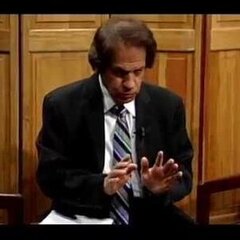


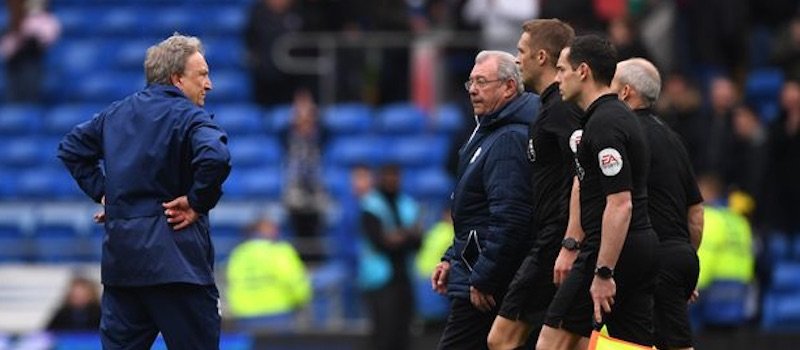

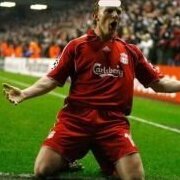
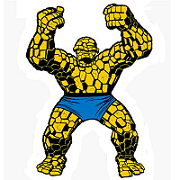
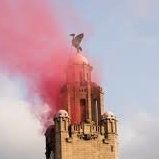


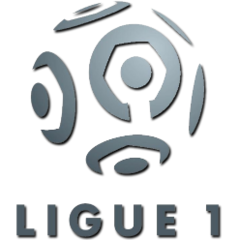
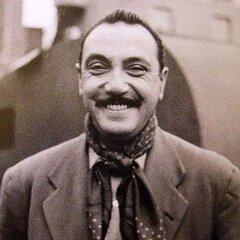
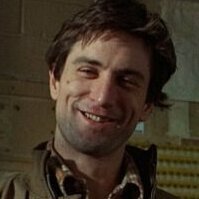
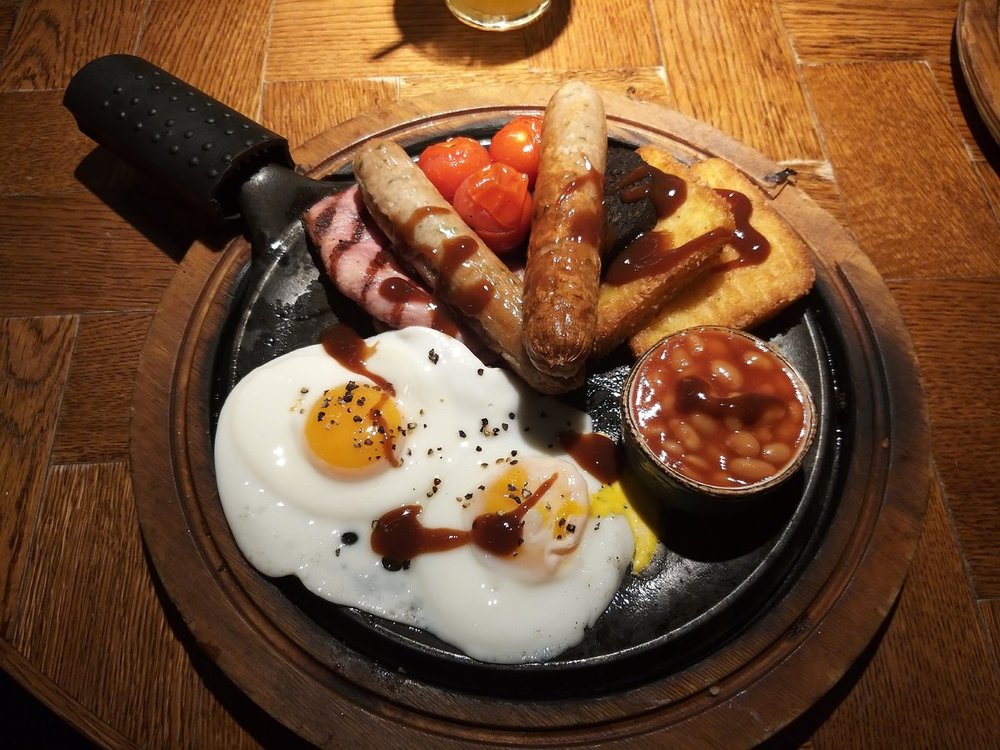

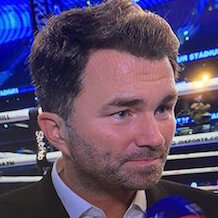


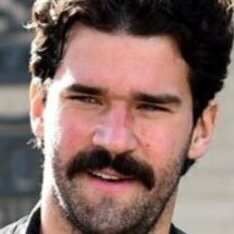
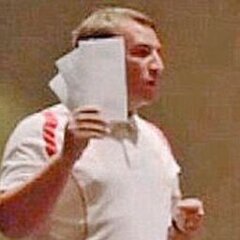
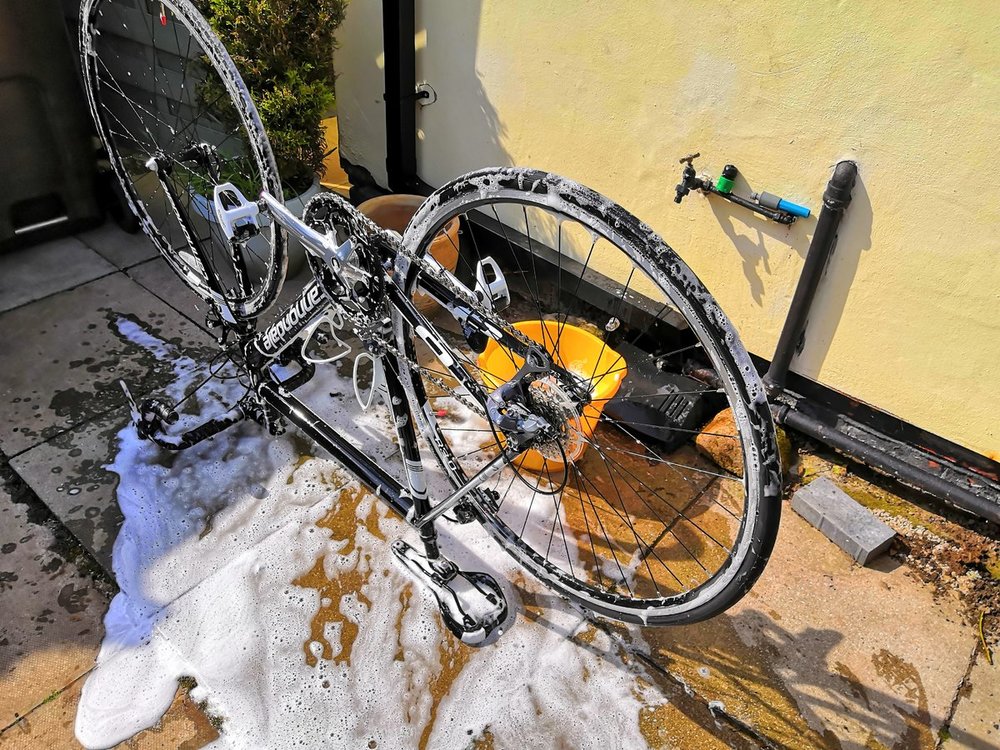
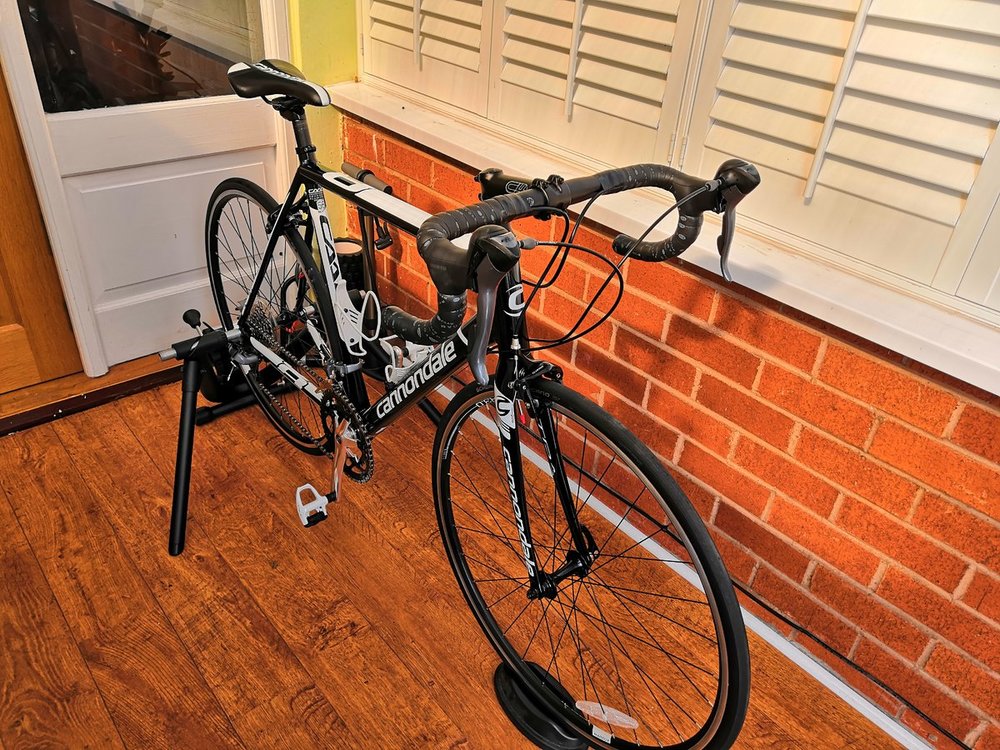
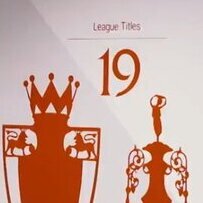




.thumb.jpeg.3d4250e4b5fb0e7ea5c443b7afb8717a.jpeg)
